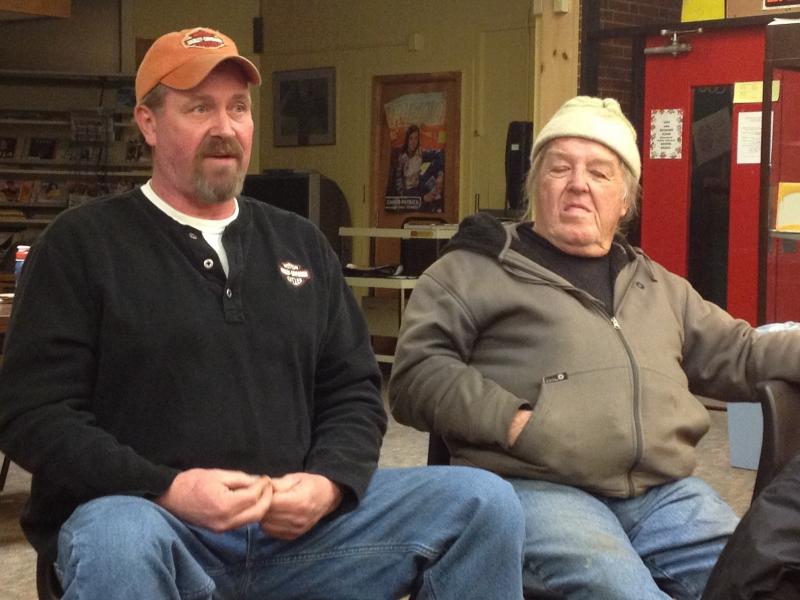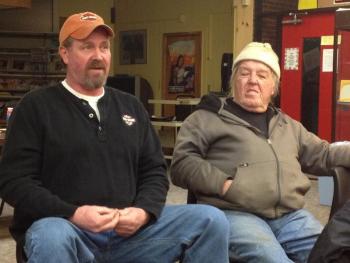Man seeks town vote on consolidating Wiscasset schools
A Wiscasset man wants a town vote to make clear residents' position on school consolidation.
Tony True told the Wiscasset School Committee on February 20 that he plans to seek a special election, “to make sure you are on the same page as the majority of the people in this town.”
If selectmen don’t schedule the vote, he'll petition for one, True said. “So eventually, you're going to have to deal with this question.”
Selectmen’s Chairman Ed Polewarczyk did not immediately return a phone message seeking comment.
True said if he does do a petition, it would propose kindergarten through grade eight be moved to Wiscasset High School, and that the high school students go to other high schools the town would pay tuition to. Parents would choose which school their high school student attends, True said later.
“...I can show how much we can save by tuitioning our kids out,” he told the committee. Students would get the same education elsewhere, he said.
The school committee's vice chairman Steve Smith said he “totally” supports holding a town vote. He's heard people say they want the high school to continue, he said.
True then asked Smith if he would take the vote request to selectmen.
“No, I've got enough to do,” Smith said, reaching for the budget folder that interim superintendent Wayne Dorr handed out earlier in the meeting.
True once served on Wiscasset’s prior school panel that predated Regional School Unit 12. In a telephone interview February 21, he said the town vote he is seeking would be non-binding.
True plans to ask selectmen March 4 if they will agree to the vote. If they do, he said he would like the school committee to draft a few options for voters, including his suggestion for a K-8 school system; if the committee doesn’t write the options, he would be willing to write or help write them, he said.
It doesn’t make sense for the new committee to make a three-school budget that the town will reject next spring as too high, True said in Friday’s interview.
At Thursday’s meeting, committee member Eugene Stover proposed having Dorr draw up an alternative, two-school budget to compare with the initial, three-school one Dorr gave the panel. Member Sharon Nichols voted with him; Smith, Chairman Glen Craig and member Colleen Bennett outvoted them.
Committee members have been talking about consolidation but have reached no terms on which schools to close, if any, or on when it would happen.
The committee has also reached no conclusions on the financial impact of a closure. At the February 20 meeting, member Sharon Nichols read from a statement that argues closing a building would save money on staff, maintenance, heat and electricity.
“We are spending money on space when we could be reducing the tax burden of our citizens and improving the educational programs for our students,” the statement reads.
In an email February 23, Wiscasset High School Principal Deb Taylor responded to a request for comment on True's suggestion to tuition out the town's high school students.
“In my opinion, the loss of a high school in this town would be tragic,” Taylor writes. “It would mark the end of a long tradition of school pride and connection that many in this community have as alumni of Wiscasset High School. In addition, the loss of our high school would impact community building and town pride moving forward.
“There would be no such comings together as the very successful WGME13 Spirit Assembly we recently held in the gym, or the well-attended basketball game against Old Orchard Beach that generated such enthusiasm...,” the email continues. “Partnerships between school and town such as the community service and internship ideas generated at a recent parent night would not happen.”
Tuitioning out the high school students would give away the local control in education the town was seeking went it voted to withdraw from Regional School Unit 12, Taylor states in the email.
Selectmen's Chairman Ed Polewarczyk said True is welcome to propose a town vote to the board. Until he hears more, Polewarczyk said his main concern would be for clear wording of any questions that go to voters.
“The worse thing that could happen is if we get results that are confusing,” Polewarczyk said in an interview February 21.
Event Date
Address
United States
























